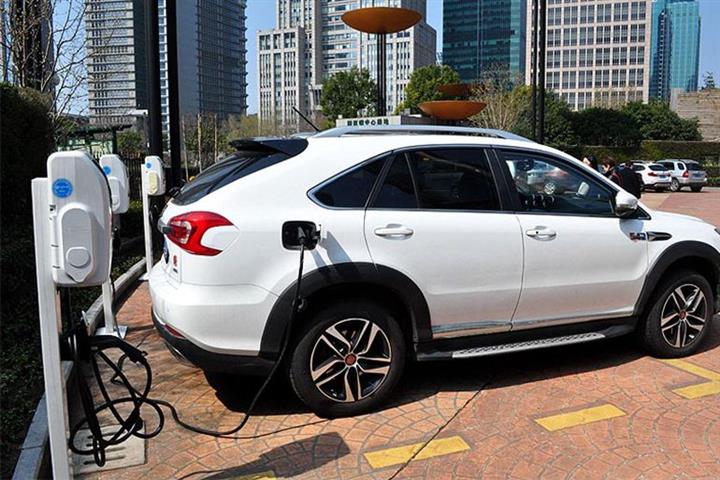
(Yicai Global) April 21 -- Chinese electric vehicle makers need to focus on customers’ demands and preferences and figure out which segment they want to target if they want to differentiate themselves in the local market, according to the managing director and auto industry lead of Accenture Greater China.
“You really have to find a way to touch the emotions of the Chinese customers, and that only can come through a proper segmentation and proper focus on the demands within that segment,” Markus Muessig told Yicai Global in a recent interview at the 20th Shanghai International Automobile Industry Exhibition.
Technologies such as the advanced driver-assistance system, or ADAS, or connected services will become commoditized with time, so carmakers fixated on such tech will find it difficult to differentiate, Muessig pointed out.
Entering the market will become more and more difficult for new players, but based on the development of the auto industry’s shift to EVs from traditional internal combustion engine vehicles it is still at an early stage of the S-curve, he noted.
The battle between new energy vehicle players in China will be very fierce over the next three to five years, and likely not all of them will survive, Muessig added, noting that firms may find various ways to differentiate, and they need technology to meet the minimum requirements.
Chinese customers tend to upgrade their vehicles from lower models to mid- and high-range ones and then to premium or luxury models, so customer loyalty is related to the value you provide to users over a long period, Muessig stressed.
It is important for Chinese carmakers to have a suitable offering for each stage, so they need to define the product that suits the consumer very well to capture a piece of loyalty, he added.
Chinese and Western original equipment manufacturers will build up ecosystems to get to consumers, similar to what we know from the handset industry, according to Muessig. Carmakers will provide value-added services using media, content, and others and achieve better loyalty than in the past 20 years in China, he said.
Chinese OEMs in Europe
Speaking about the European market, Muessig noted that for Chinese OEMs, it is very important to understand the difference in the culture of each country and the different regulatory environment that comes with it.
"The European market is less homogeneous than the Chinese territory, so by approaching it country by country, you will have to come up with a very smart network strategy," Muessig said.
“Whether this is a classical model where you work with distributors and importers, where you work with dealer groups, where you work in an agency model, or in a direct and own retail model, it depends on the strategy that the OEM is taking.” he said.
It is also necessary to establish an after-sales network in Europe because every car will be exposed to different weather conditions, wear and tear, and traffic depending on the area, Muessig added. There needs to be a service for spare parts, repairs, and maintenance of vehicles, and with Europeans having different habits per country, a solid network is of high importance, he added.
Time and Education
Chinese car brands are quite new to many Western users, whether in the business-to-customer or business-to-business models, Juergen Reers, managing director of Accenture, said to Yicai Global.
It will take time to inform and educate customers about Chinese brands, and over the next years, pricing will be an important factor because markets will become more price competitive and price sensitive as shortages of major components gradually ease, added Reers, who is also automotive lead at Accenture.
“Look at interest rates, and the importance of interest rates also for the financing of new cars,” Reers said. “Users will probably become more price sensitive, and this is also an opportunity to enter into the volume segment with a price-attractive offer."
"It will be a function of the user value that these vehicles are also focusing on the user needs in those markets where Chinese vehicle manufacturers want to expand to,” he said.
China is the largest auto market, and it is shifting toward EVs and plug-in hybrid vehicles, which has and will continue to have a huge impact on the global car industry, according to Reers.
“The value chain for EVs is also still very focused on China, starting with raw materials, with cell manufacturing, also batteries, full batteries sets, the importance is going to be very significant,” he said.
Most Chinese carmakers are focused on the local market, which will continue to grow and offers many opportunities to scale up, but step by step, they will explore other markets, especially the volume segment, Reers pointed out. They have entered other Asian counties and have some premium vehicles in Europe, and they will further expand, but short-term changes are unlikely, he noted.
Editor: Peter Thomas